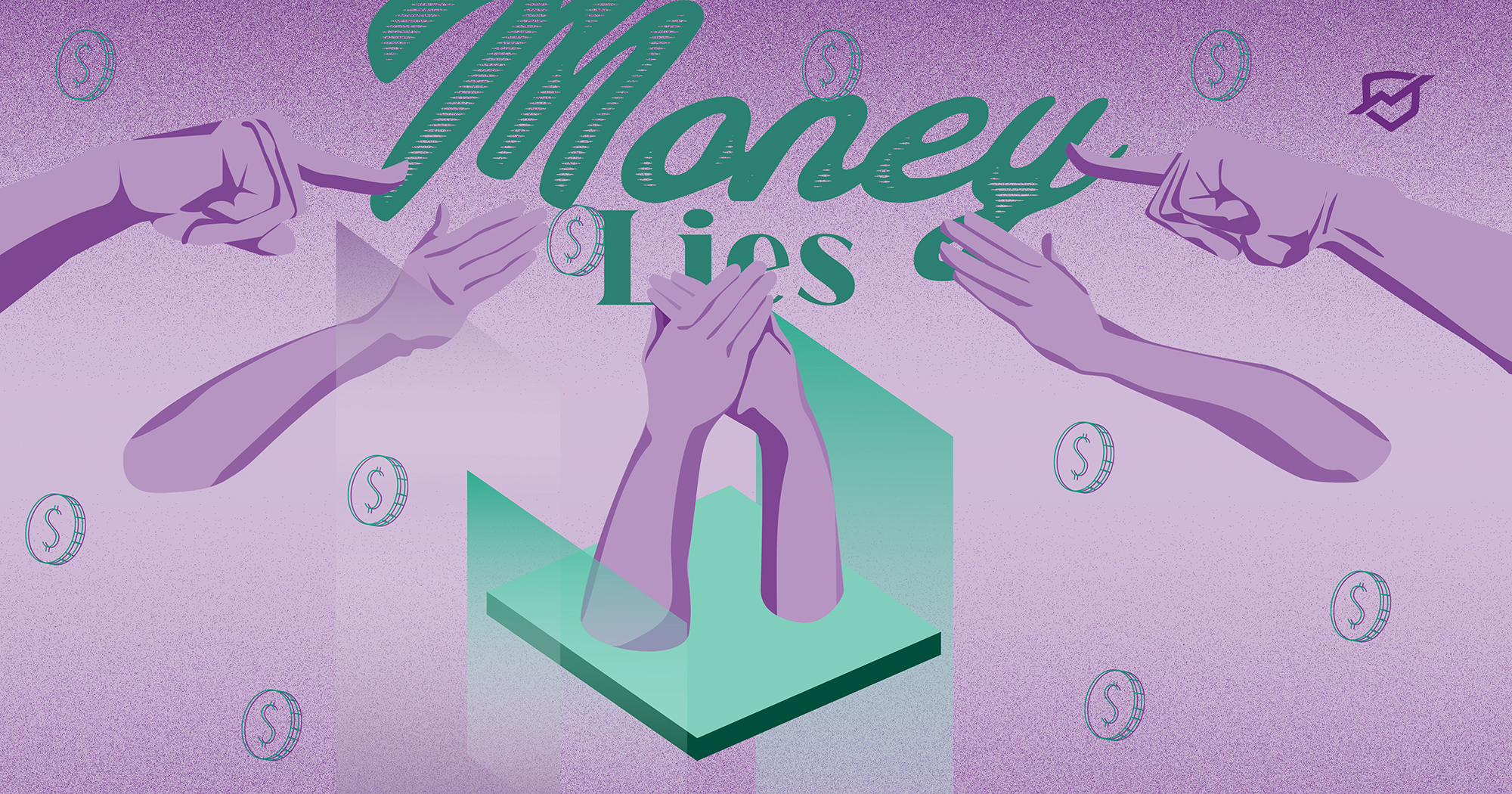
We are all guilty of indulging in the occasional money lie.
Whether you tell yourself that you work hard during the week so you definitely deserve to splurge on the weekend or you dupe yourself into thinking that you’ll start to budget next month, the bottom line is that it’s common to find comfort in financial lies because they allow you to cloud reality, if only for a little while.
Take a look at the six money lies listed below to see if you recognize any of them from your own life.
This may have its root in some religious philosophies. The message is that money should not be the center of your life, which is certainly true, but money is sometimes painted as evil and given a bad image overall.
The fact is that money in and of itself is neither good nor bad, it is how you use it and what you do to get it that turns it into a contentious issue. Money is simply a part of life and learning to manage it better can only improve your standard of living so there is no need to be afraid of making money or no reason to feel guilty for wanting to spend it.
This is a popular excuse for not saving. Not making enough money to put some aside might sound like a plausible reason for not starting to save, but in fact, almost everyone can afford to save something, or at least take steps to make saving a short-term goal. There is often no need to make more money to save. While that may be one way to look at things, you can also find ways to spend less which often works much better as you won’t be tempted by lifestyle creep.
If you are in a position where you feel you truly can’t afford to cut back on spending, you should always start with a budget. Track your spending and see where your money is actually going. From there you can see what categories you might have been overspending without realizing and can save some money in. You should also look at paying off your debt as interest payments could be eating away at your disposable income. Finally, you should look at increasing your income using a side hustle — there are so many to choose from. It doesn’t have to replace your current job, but if you’re not making enough money to save now, even a few extra dollars per week can help.
This is a defeatist attitude and if you decide to adopt the mantra that “you can’t take it with you when you die”, then you are essentially drawing the line around your priorities. Ultimately there is nothing wrong with enjoying life or living in the moment, but it is always smart to have a plan or emergency fund in the event that something goes wrong.
Although you can’t take money with you when you die, you may have some things you’d like to do with the money you do leave behind. If you have children or plan to have any in the future, it’s always a good idea to put some money aside for them so you can actually leave them something when you pass on.

If you make yourself feel better about spending money you shouldn’t have touched because you took advantage of a sale, you are certainly not alone. If you purchased something purely because it was down from $100 to $70, you didn’t save yourself $30, you just spent $70.
Spending money for items on sale is okay, you just have to actually be sure you need it in the first place. A good idea is to note down every time you see something you really want to buy. If you still want it six months or a year later, you can then keep an eye out for when it goes on sale. This ensures that you’re buying something because you actually want it, rather than just because it’s on sale.
Time goes by so quickly that even if you are just out of university and in your first job, it is not too early to start planning for retirement. Deciding to save for your retirement is one of the best things you can do for your future and, like many other financial goals, the earlier you start the less you have to put aside because you have more time for your money to grow.
Often the most basic and best way to start saving for retirement is with an employer-matching retirement plan. In the US these are known as 401k plans. A percentage of your income is automatically paid into that plan and your employer will match that amount up to a specific contribution limit ($20,500 in 2022). By not utilizing these sorts of retirement plans you’re essentially throwing away money.
This kind of naivety can be extremely expensive. In a perfect world, your financial advisor would be looking out for your best interest, but there are a number of unscrupulous agents and advisors in the industry who place your funds simply to maximize their commission or because it is easiest for them.
An advisor might also try to act in your best interest and fail because of a lack of understanding of your goals. This isn’t to say that financial advisors are necessarily bad, but it pays to have an understanding of where your money is kept and what you can expect from your investment portfolio.
If any of these money lies are familiar to you, it might be time to change your perspective. Don’t let them reinforce any unhealthy beliefs or financial habits; remind yourself that it is always better to tell yourself the truth about your finances.